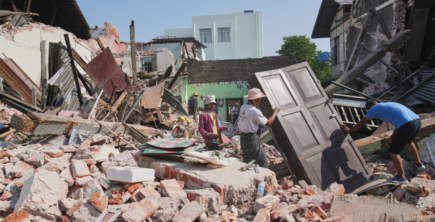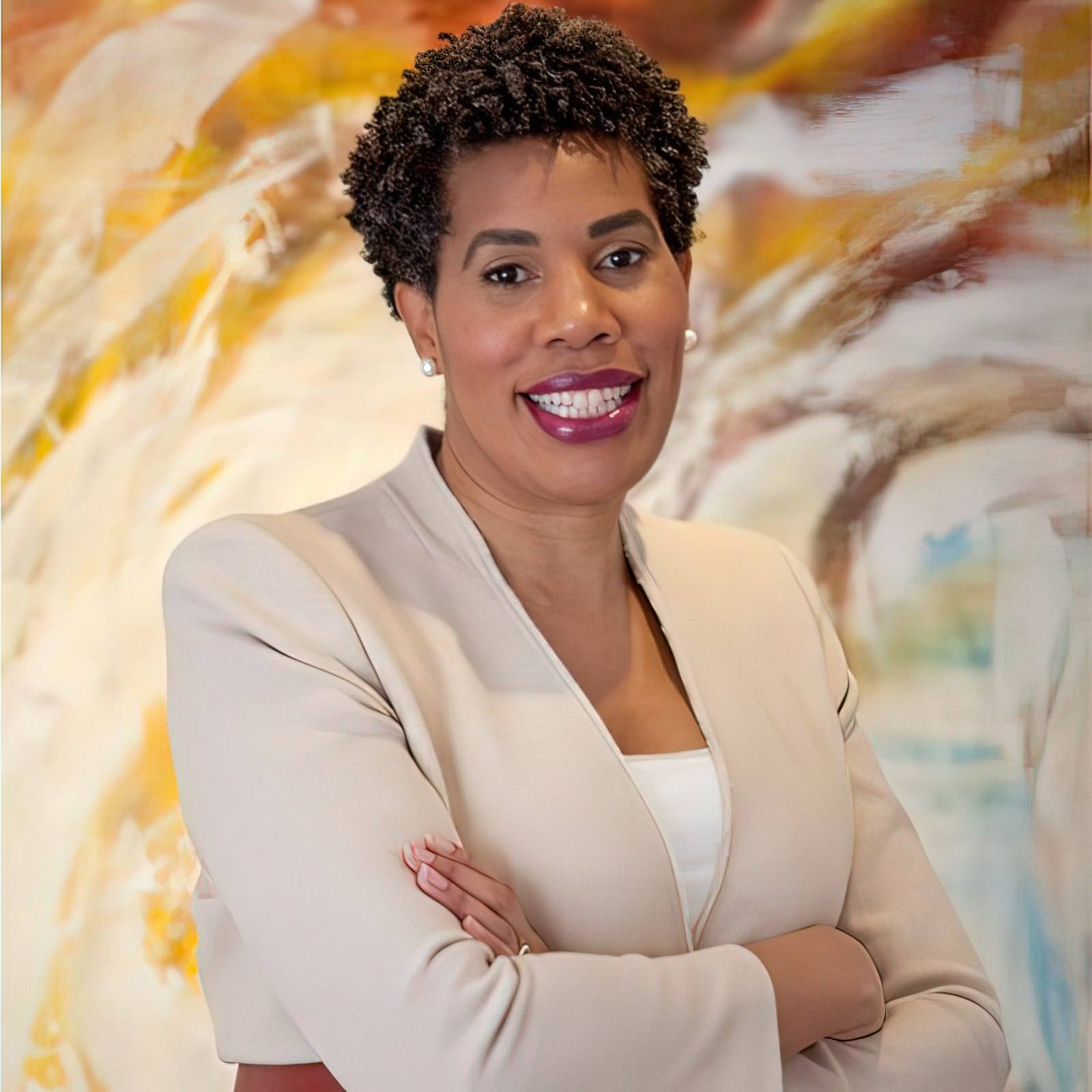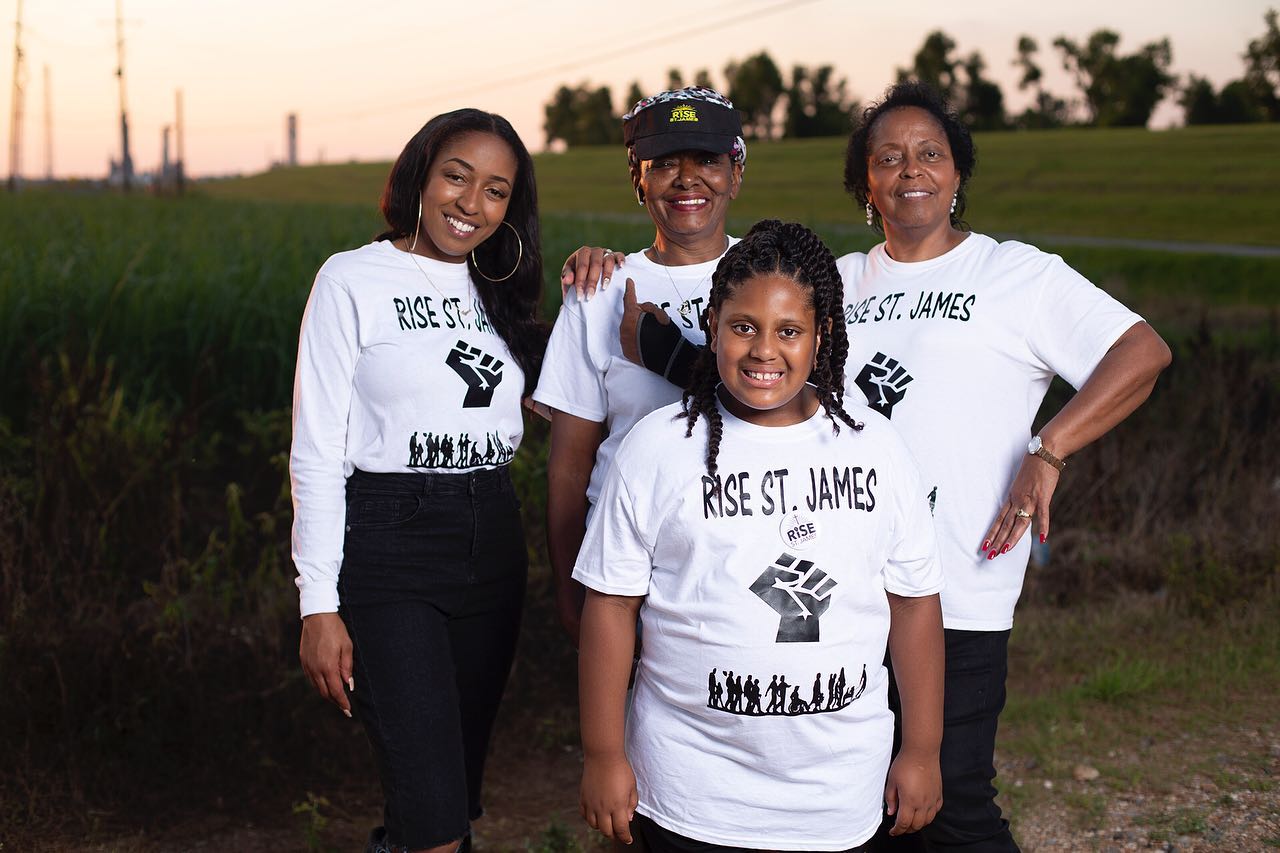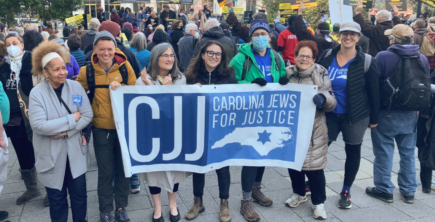
Healthy Individuals & Communities

From the devastating wildfires in Maui to the harrowing hurricanes of Louisiana, there is mounting evidence that climate change is the most significant threat facing humanity. “It is incredibly worse for people who live in communities where residents are economically disadvantaged or historically marginalized, are of color, or both,” said Margot Brown, senior vice president of justice and equity at the Environmental Defense Fund (EDF).

In honor of Black Philanthropy Month, Senior Advisor Michelle Mitchell of Tides Center led a discussion with Brown, who has a doctorate in environmental health science, to explore what inspired her to start a collective action fund at Tides Foundation in support of the Frontline Resource Institute (FRI, pronounced “free”), a nonprofit she founded in partnership with EDF in service of community-based organizations advancing climate and environmental justice.
Below are key takeaways from the conversation, which highlight why Brown considers climate change a threat multiplier; why FRI’s strategy is informed by leaders across the climate and environmental justice diaspora; and her advice to funders wanting to support grassroots environmental justice organizations.
1. Climate Change as a Threat Multiplier
“These communities face legacy pollution and health problems that have been in their communities for far too long due to polluting industries or nearby roadway exposures, and they often lack adequate infrastructure and access to good health care, so when you put climate change on top of existing issues it becomes a threat multiplier.” Recognizing community-based organizations have been working on climate, health, and justice issues for years, Brown said she started FRI to provide community-based organizations on the frontlines of environmental and climate justice with resources and technical assistance to further their progress. “FRI is guided by leaders of community-based organizations that sit on the frontline of environmental and climate justice.”
2. Prioritizing the Perspective of Community-Based Organizations
“It was imperative to me, if we were going to build something in service of community-based organizations, that the folks who work in those organizations be the ones to inform what the Frontline Resource Institute was going to be,” said Brown. FRI receives guidance from conceptual committee members who have fought for environmental and climate justice for decades, some who are new to the movement, and who work all over the globe — from New York City to the Philippines. “This diversity of thought and diversity from the diaspora was imperative to build FRI because differing perspectives were needed to create a durable organization that could meet the needs of the issues we were trying to solve,” Brown said.
3. On the Importance of Addressing Health and Environmental Justice
“Environmental justice and health are deeply intertwined. You can’t address one without addressing the other,” she said. “Let me give you a concrete example because it is the North Star of all my work. My North Star is called the social determinants of health.” Social determinants of health, as Brown explained, are the conditions within people’s environments; where they live, learn, work, play. These conditions, she explained, determine a person’s access to education, health care, and ultimately, one’s economic stability. “I think a lot of times we say we’re going to fix education, we’re going to fix economic development, or we’re going to fix the environment or someone’s access to health care, but they are intrinsically intertwined,” she said. FRI examines both the past and present to understand what has been purposefully or incidentally put upon specific communities. “To have an impact on environmental justice, we must examine how these issues intersect [with one another] and work in partnership with community-based organizations, because they understand social determinants of health better than anyone else.”
4. Investing in Capacity Building and Strategic Planning is Critical
“When we started our first open RFP process, so many people said, we just need to give these groups unrestricted funds because they know what they need to do. To my shock, the conceptual committee stated the RFP must be more deliberate than just offering unrestricted funds. They insisted we had to invest in strategic planning because environmental and climate justice groups never get funds to plan strategically.” According to Brown, the committee was split between funding organizational capacity building and strategic planning, but also realized community-based organizations need both. “You [Michelle] were gracious enough to help us split the RFP to meet the needs of the two different groups — those that are more established and those needing capacity support with developing an accounting system, a legal framework — things that take time and money that many of these groups don’t often have.”

Shamyra Lavigne, Janice Ferchaud, Sharon Lavigne, and Amerie Braud of RISE St. James near the Mississippi River in St. James, Louisiana
5. Illustrating a Moment of Impact
Brown recounted how FRI has provided funding to environmental justice organizations led by community members who have lived experience with the detrimental impact of climate change. For example, she shared how Sharon Lavigne was living in temporary housing when she applied for funding from FRI. “Miss Sharon was living in a trailer because her home had been destroyed two years earlier by a hurricane, thus she was running RISE St. James out of the trailer parked in front of her home as she sat on the frontlines of climate change and environmental justice.
6. Advice to Funders Seeking to Support Environmental Justice Organizations
“Make sure that your grant serves the community. I would tell everybody before you go out to start a fund, do two things. One, listen. I mean engage in radical listening to understand what needs to be done in service of community-based organizations. As you’re doing that radical listening, what you’re going to hear are gaps. And if you listen for those gaps, you’re going to be able to meet the unique needs of different frontline organizations.” Secondly, Brown discussed the importance of funders not placing an undue burden on community groups. FRI, for example, does not require grantees to write a report about their progress, but rather requests they engage in an in-person convening.
7. Call to Action in honor of Black Philanthropy Month
“If you look at the number of philanthropic dollars that go towards environmental causes, it’s relatively small. And if you look at the dollars that go to frontline groups, it’s a fraction of those dollars. I would encourage them [donors] to consider more funding in this space. Climate change is a threat multiplier because it is going to intensify already existing inequalities, and especially those in frontline communities like Ms. Lavigne’s [in Southern Louisiana].” Brown concluded with an important reminder: Funding frontline groups serves not just Black or Brown communities or low wealth communities, it serves every community, it serves humanity.
Listen to Brown’s full remarks in the audio story above and learn more about FRI’s work to support frontline climate and environmental justice leaders.

Healthy Individuals & Communities

Our Community

Philanthropy

Read the stories and hear the voices of social change leaders fighting for justice.